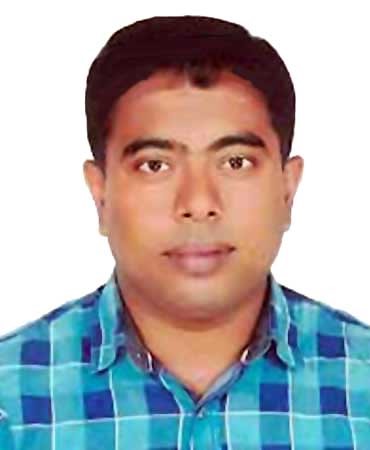Oracle Cloud shaping tomorrow’s healthcare today: Guru

Technology is at the heart of transforming the healthcare industry, and digital transformation—backed by the cloud and other emerging technologies—is laying the platform for the industry to deliver the future of healthcare in Asia, global cloud solutions giant Oracle said.
While speaking online to the Bangladesh Post to mark the World Health Day (7th April), Guruprasad Gaonkar, Global Go-to-Market Leader, Cloud ERP & Digital Supply Chain, at Oracle Corporation, discussed how the recent pandemic has further accelerated the adoption of digital technologies within the sector.
“Healthcare is one of the largest and the life-critical industry across the world. As technology advances, so do medical capabilities, and clinicians can now offer more innovative treatments and a better quality of care than ever before. The ongoing pandemic itself made healthcare providers form new ways to bridge providers and patients’ resistance to new processes and procedures – from telehealth to remote patient analytics,” he said.
However, Guru mentioned that despite these advances, the healthcare industry faces several new challenges that could threaten its ability to provide access to high-quality, affordable care. He pointed out that the cost of providing healthcare has risen to an unsustainable level in the region, fueled by an ageing population that needs to be treated for longer, coupled with evolving customer expectations. Guru highlighted that healthcare providers are now placed in a position where they have to do more for less while ensuring frontline workers can cope under this additional pressure.
“We are already witnessing digital transformation shaping tomorrow’s healthcare, today. We are in a time where healthcare providers are challenged with speed, agility, and efficiency on scale combined in one. The industry is evolving fast, beyond simply being modern. Best in class health care providers are embracing technology towards empowering the future, innovating to stay ahead. Many are already adopting Emerging technologies such as the cloud, Internet of Things (IoT), blockchain, adaptive intelligence, and machine learning across public and private health institutions in advanced and exciting ways to address many of the industry’s challenges. We at Oracle are fortunate to be partnering with health providers, fast becoming the backbone of the digital health care industry,” said Guru.
Guru also discussed the shift from volume-based to value-based care, which he said is a key focus area that needs to be addressed through digital transformation. “To truly support the intersection of cost, quality, and risk to achieve excellence, healthcare organizations need a robust foundation. It must be one that can enable a future state where clinical and quality data, along with costs across an episode of care, are combined to deliver their full potential.”
“With a solid foundation of digital technologies that span analytics, cloud, and automation, organizations can reduce risks leading to severe financial consequences. Transformative technologies supported by the cloud now provide the necessary building blocks for ensuring successful value-based care initiatives and improving patient outcomes,” opined Guru.
Guru mentioned that Oracle is fast becoming the backbone for next-generation health care systems globally and regionally. He said, “With every penny spent on administration can’t be spent on patient care, making healthcare operational excellence is paramount. Oracle cloud excels in ensuring Financial & Supply Chain Health Excellence”. He further adds that Oracle’s National Electronic Health Records Database and the Oracle Public Health Management System, built by a global team that worked round the clock in partnership with government and non-government institutions, had played a critical role in administering COVID vaccines globally.
“For example, Pharmaniaga Berhad—the largest integrated pharmaceutical group in Malaysia—uses Oracle Cloud logistics and Internet of Things applications to efficiently and safely deliver COVID-19 vaccines to health facilities across the country. Hulunbuir People’s Hospital in inner Mongolia used the Oracle Application Express (APEX) low-code programming tool to build and deploy a laptop-based application in just three days to digitize its admission processes. Researchers at South Australia’s Flinders University, working with local drug developer Vaccine Pty. Ltd., conducted heavy-duty testing of a COVID-19 vaccine candidate using Oracle Cloud Infrastructure,” said Guru.




